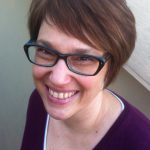

This Event Report was provided by Kelcy Shepherd, Head of Digital Programs, Amherst College and Laurie Allen, Coordinator for Digital Scholarship and Services, Haverford College Library.
Around 30 people came together to talk about Digital Scholarship in the context of Liberal Arts Colleges at a Mellon-funded pre-conference to the DLF Forum on Sunday, November 3. The participants were largely Library Directors and heads of Digital Scholarship/Digital Library groups at selective Liberal Arts Colleges, and were brought together by Neil McElroy, Librarian of the College at Lafayette College, who selected a cohort of schools where Digital Scholarship programs are already underway. As this conversation was a first foray into systematic dialogue and collaboration about Digital Scholarship for many of the schools involved, it had a very open “un-conference” format, moderated by Rachel Frick, Director of the Digital Library Federation. To extend the conversation beyond our context and make sure we weren’t re-inventing a whole system of wheels, we were joined in the meeting by Jennifer Vinopal (NYU), Stewart Varner (Emory University), Andrew Ashton (Brown University), and Trevor Muñoz (University of Maryland), “experienced outsiders” who were tremendously helpful in asking questions, clarifying our questions and problems, and providing feedback from their own successes and struggles.
Most of the day took place as a series of six conversations, divided over three time slots, looking at issues from Defining Digital Scholarship (we decided not to) to infrastructure, sustainability, staffing, and impact. Collaboration and organizational culture were two themes that we felt should inform all of these discussions. The conversations were lively and clarifying, and produced great notes, lots of questions, and some real opportunities for collaboration.
At the end of the day, the full group came back together to talk about next steps. In a state of tremendous exhaustion, and with lots of direction and encouragement from Rachel, we left the meeting with four smaller action groups and a shared, strong commitment among participants to continue the conversations.
The group identified four next steps that smaller groups will work on: 1) a manifesto stating our shared values and principles 2) a white paper that explores Digital Scholarship and the Liberal Arts, with a particular focus on impact 3) a lightweight, effective way to share the work we’re doing and find venues to get together more often and 4) a draft grant proposal that will describe some new collaborative models we’ve begun to envision. At the same time, some of the schools will join together on work (already started) to collaborate on the implementation of Islandora to provide infrastructure support for Digital Scholarship.
Many of the participants stayed for the full DLF Forum, which strengthened the networks initiated at the pre-conference, generated even more ideas, and broadened the context and knowledge we will bring to future conversations.
